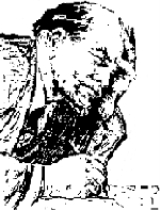
Economic and Philosophic Science Review
Encyclopedia
The Economic and Philosophic Science Review (EPSR) is a British socialist newspaper founded by Royston Bull, formerly a leading member of the Workers Revolutionary Party and industrial correspondent for The Scotsman
newspaper.
Bull split from the WRP in 1979 and with a number of supporters to form the Workers Party. The group, upon formally repudiating Trotskyism
, renamed themselves the International Leninist Workers Party and later the Economic and Philosophical Science Review. The ILWP/EPSR are avowedly Marxist-Leninist
and supportive of the Soviet Union
but critical of the Communist Party of the Soviet Union
's revisionism which they claimed was the result of Joseph Stalin
's political errors. They are also very strongly supportive of the Irish Republican Army
and many Third World
national liberation movements. Although Royston Bull died aged 69 on 2 January 2005, the EPSR continues to be published fortnightly, by its supporters.
by the leader of the National Union of Mineworkers, Arthur Scargill
in 1996, the EPSR dissolved itself into the SLP where they operated as a faction around their paper, the EPSR. Royston Bull was elected Vice-President of the SLP in 1998, but was then almost immediately expelled (or 'voided') from party membership. Arthur Scargill, who had supported Bull's candidacy, used it to strengthen his position within the SLP. The election caused a significant rift within the SLP, with one member, Brian Heron, calling Bull's election "a disaster". Whilst some of Bull's supporters stayed within the SLP, most left to rejoin Bull and organised themselves as "EPSR supporters."
The Scotsman
The Scotsman is a British newspaper, published in Edinburgh.As of August 2011 it had an audited circulation of 38,423, down from about 100,000 in the 1980s....
newspaper.
Bull split from the WRP in 1979 and with a number of supporters to form the Workers Party. The group, upon formally repudiating Trotskyism
Trotskyism
Trotskyism is the theory of Marxism as advocated by Leon Trotsky. Trotsky considered himself an orthodox Marxist and Bolshevik-Leninist, arguing for the establishment of a vanguard party of the working-class...
, renamed themselves the International Leninist Workers Party and later the Economic and Philosophical Science Review. The ILWP/EPSR are avowedly Marxist-Leninist
Marxism-Leninism
Marxism–Leninism is a communist ideology, officially based upon the theories of Marxism and Vladimir Lenin, that promotes the development and creation of a international communist society through the leadership of a vanguard party over a revolutionary socialist state that represents a dictatorship...
and supportive of the Soviet Union
Soviet Union
The Soviet Union , officially the Union of Soviet Socialist Republics , was a constitutionally socialist state that existed in Eurasia between 1922 and 1991....
but critical of the Communist Party of the Soviet Union
Communist Party of the Soviet Union
The Communist Party of the Soviet Union was the only legal, ruling political party in the Soviet Union and one of the largest communist organizations in the world...
's revisionism which they claimed was the result of Joseph Stalin
Joseph Stalin
Joseph Vissarionovich Stalin was the Premier of the Soviet Union from 6 May 1941 to 5 March 1953. He was among the Bolshevik revolutionaries who brought about the October Revolution and had held the position of first General Secretary of the Communist Party of the Soviet Union's Central Committee...
's political errors. They are also very strongly supportive of the Irish Republican Army
Irish Republican Army
The Irish Republican Army was an Irish republican revolutionary military organisation. It was descended from the Irish Volunteers, an organisation established on 25 November 1913 that staged the Easter Rising in April 1916...
and many Third World
Third World
The term Third World arose during the Cold War to define countries that remained non-aligned with either capitalism and NATO , or communism and the Soviet Union...
national liberation movements. Although Royston Bull died aged 69 on 2 January 2005, the EPSR continues to be published fortnightly, by its supporters.
Relations to Socialist Labour Party
With the foundation of the Socialist Labour PartySocialist Labour Party (UK)
The Socialist Labour Party is a far left socialist political party in the United Kingdom. The party is led by former trade union leader Arthur Scargill, who established it in 1996 as a breakaway from the Labour Party...
by the leader of the National Union of Mineworkers, Arthur Scargill
Arthur Scargill
Arthur Scargill is a British politician who was President of the National Union of Mineworkers from 1982 to 2002, leading the union through the 1984–85 miners' strike, a key event in British labour and political history...
in 1996, the EPSR dissolved itself into the SLP where they operated as a faction around their paper, the EPSR. Royston Bull was elected Vice-President of the SLP in 1998, but was then almost immediately expelled (or 'voided') from party membership. Arthur Scargill, who had supported Bull's candidacy, used it to strengthen his position within the SLP. The election caused a significant rift within the SLP, with one member, Brian Heron, calling Bull's election "a disaster". Whilst some of Bull's supporters stayed within the SLP, most left to rejoin Bull and organised themselves as "EPSR supporters."

